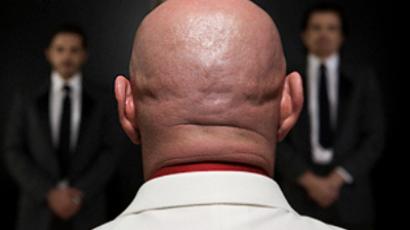Moscow and London start to thaw relations
Clouds over Russia-UK relations remain, but the two sides have been trying to clear the air.
Moscow has called for ties with the UK to develop in all areas, Russian Foreign Minister Sergey Lavrov said at a meeting with his British counterpart William Hague in Moscow.
"We would like relations between Russia and the United Kingdom to develop comprehensively. President Medvedev voiced this stance in his address to [UK] Prime Minister David Cameron on May 12," Lavrov said opening the talks with the British Foreign Secretary on Wednesday.
Lavrov added that Moscow-London relations were also a priority topic at a meeting between the two countries’ leaders on the sidelines of the G-8 summit in Canada, in June this year.
It is William Hague’s first trip to Moscow as foreign secretary. As well as holding talks with his counterpart, he also met with President Dmitry Medvedev.
Both sides seem to be willing to finally improve relations. In recent years they have been dogged by a number of issues including the controversy over the death of former FSB agent Alexander Litvinenko, and the UK’s criticism of Russia after the 2008 war in South Ossetia. Lavrov and Hague agreed that differences still remain and it will take time for them to be ironed out.
According to the Russian Foreign Minister, Moscow is ready to work on resolving the issues, within the framework of the Russian law.
“There are problems in relations including problems linked to the so-called Litvinenko case,” Lavrov said at a joint media conference with Hague following the talks. “We confirm our position that we are ready to cooperate on the basis of our laws.”
Russia’s top diplomat stated that Moscow will be ready to carry out an investigation into the security agent’s death in London, back in 2006, if British authorities provide all the necessary documents related to the controversial case.
"As far as suspicions alleging the FSB's involvement in Litvinenko's death are concerned, we want to cooperate in order to establish the truth," Lavrov said.
He added that the presence of problems in relations between “two normal states does not mean that all other areas of cooperation should be affected”. And this is the stance that both Russia and the UK share, Lavrov pointed out.
The British Foreign Secretary agreed: “We have serious differences which we do not shy away from discussing". He added that Moscow and London "should be able to acknowledge that differences remain and apply our minds to them, patiently, through dialogue and diplomacy."
The change of government in the UK provides a perfect diplomatic backdrop to try to re-normalize relations and “get the mount of this rather absurd dead end which they have been stuck in because of the shocking but very isolated case of the death of Mr. Litvinenko,” said Christopher Granville, the co-founder of the London-based Trusted Source research group and a former British diplomat to Russia.
“It is really a legal and a practical political stalemate and the only thing to do is simply to set it to one side as an unresolved and, to be honest, unresolvable disagreement and move on to a normal agenda,” Granville told RT.
Security in Afghanistan and Pakistan is one area where Russia and the UK could find a lot of common ground, says Anatol Lieven, a professor at the Department of War Studies at King’s College, London.There is a new perception of common interest on both sides because “everybody is now beginning to think about the time after the US and Britain withdraw from Afghanistan,” Lieven noted.
Despite Britain playing a “minor part” in the Afghan campaign, the common interests with Russia, which is greatly interested in peace in Central Asia, pushes both sides to work more closely together.
“Pakistan, as we have seen in the last two weeks, is a very unreliable partner, whereas Russian influence there in Central Asia is an absolutely essential lifeline. Without them, our position in Afghanistan would be much more endangered,” concluded Lieven.
Brian Cattell, secretary of the Bow Group Conservative think-tank in London, says the UK needs international partners and Russia is an important world player.
“William Hague has recognized that Britain in its foreign policy needs to embrace a whole host of countries. Its foreign policy cannot just be based on strong relations with one or two countries,” Cattell said.
He added that “Britain needs to look to emerging markets all around the world and Russia is certainly one very important market of that kind. And there are opportunities for British business.”













